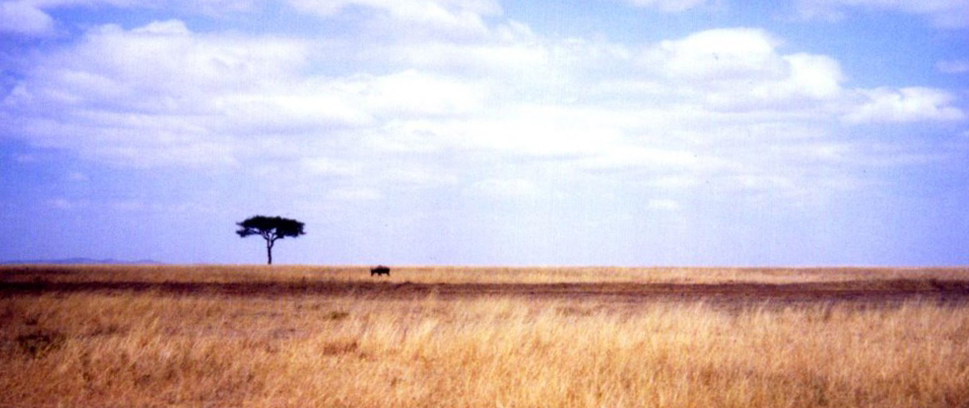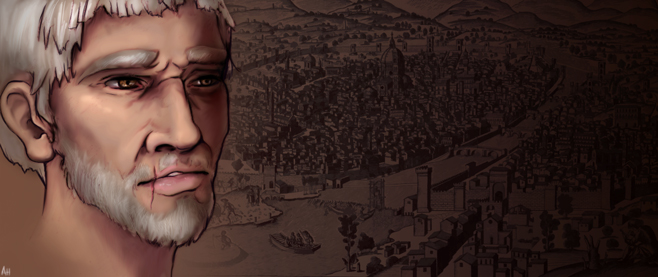
The Tangled Line
A couple of weeks ago, a video spread across the internet that documented a nine-year-old child named Caine and his makeshift arcade, made entirely out of cardboard boxes and random odds and ends. In the video, Caine’s dad explains that Caine has only had one customer since he built his arcade: the director of the film itself. In an attempt to help the boy realize his dream of having people enjoy his arcade, the director recruits a flash mob to descend on his arcade all at once, spending an entire day buying his “fun passes” and playing his self-made games. It was a manufactured but effective emotional payoff because of Caine’s obvious joy at having a group of people show real interest in what he had created.
[pullquote]My dad was a really great dad; I wish I could have been a better son.[/pullquote]
That wasn’t what made me cry. What made me tear up was Caine’s dad, depicted so clearly as an encouraging and enabling presence in Caine’s life. Even though his dad was more interested in auto parts than arcades, he gave his son whatever he could to make sure Caine was able to fully invest himself in his hobby: prime real estate in front of the auto-parts shop, cardboard boxes, random parts. Here was a father who did not share his son’s passion for games and arcades, but simply delighted in the joy his son found in making and playing them.
It’s impossible to watch that video without being reminded of my own dad, who died recently after a three-year battle with cancer. There’s something about that initial realization of the fact that your father will soon die – it forced me to confront two distinct and contrasting truths: my dad was a really great dad; I wish I could have been a better son.
I remember him taking me fishing. It was the only thing I knew him to be truly passionate about. Unfortunately, I was far more passionate about Weird Al Yankovic at the time, so I would play it on his boat’s tape deck far too loud and chase all of the fish away. Eventually, I would grow bored and whine until he took me home. I did not enjoy fishing with my dad. Those words – the eight words you just read before this sentence – are some of the most difficult I’ve had to write in a long time.
I’ve had moments of regret about my childhood before. Times I’d hurt a friend’s feelings needlessly or made my parents feel bad in my anger. There’s the many ways I’d humiliated myself in front of a girl trying to be romantic. But this regret feels more real and weightier than anything I’d felt before. Like I’d colored a man’s life simply by simultaneously being a man’s son and being apathetic about his favorite thing. At the forefront of my and heart is the undeniable truth that we could have been much, much closer, if only I’d accepted fishing as a hobby instead of stupid, dumb videogames.
My dad seemed appreciative of my pretending to fish with him anyway. After every outing on the lake, we would stop by the local movie rental store, where I would rent a videogame for my Sega Genesis. I would run into the house, past the couch where he would soon fall asleep, and shut myself up in my room for hours, attempting to beat Cool Spot before the three-day rental period had expired.

Eventually, as a middle-school aged kid, a couple of my friends and I got the idea to publish a “zine” about videogames. We spent a significant amount of time planning, preparing, and writing it, and even settled on a name we liked: Controller Overload. Once it was done, we were faced with the sort of question middle-school aged kids don’t consider until they have to: how are we going to print this thing?
I handed the finished product (about 8-10 pages) to my dad, who did something I can only tell you about now, when he is no longer with us, because no one is allowed to hold it against him anymore: he stole copies from his workplace. He came home as a hero, and presented me with 50 copies of the finished product, sorted and stapled already.
Despite this brief lapse in work ethic, was an incredibly hard worker. Working as an accountant, he was fully invested in doing his job and doing it well. But it became clear to me in his last few months that his priority had always been his family. He worked not because he loved it, but because he wanted us to be content without struggling. He wanted me to be successful and happy. Crucially, he did not treat happiness and success as mutually exclusive.
When I declared a desire to take up bass guitar (because I thought Mike D. from Greenday was just the coolest), he bought me a bass and forced me to, you know, actually take lessons and learn how to play the thing. When I started writing (really badly) about videogames, my parents managed to keep me up to date with each generation, buying me a Turbo Grafx-16, then a Sega Genesis, a Nintento 64, Playstation, a Gamecube, until I moved out of the house.
During our last Thanksgiving dinner, we were discussing my recent attempts to professionally write about videogames, and the small amount of success I had experienced doing so. My dad chimed in: “I remember buying you all those different videogame machines.” I braced myself for a warm family moment, one of those I’d be able to look back on fondly for years to come. Instead, he said frankly: “We must have wasted thousands of dollars on that stuff.” My immediate reaction was to laugh – it was genuinely hilarious. It didn’t hurt my feelings, because I never had a sense that my dad understood or enjoyed videogames. All I knew was that he made it possible. All he needed to know was that I was passionate about it. I don’t know about you, but that is way better than my dad totally getting it.
He never expected to be paid back for it either. Shortly after he found out he had cancer, just as he started to feel slightly under the weather, I mentioned that I would like to go fishing with him sometime. The boat was in disrepair and just wasn’t up for the trip. Neither was he. We never did get to go fishing together as grown adults; one of my greatest regrets. But I think I probably regret it more than he did. After all, he got what he wanted out of life: a wife and son that recognized his love for them, and were genuinely happier because of it.






